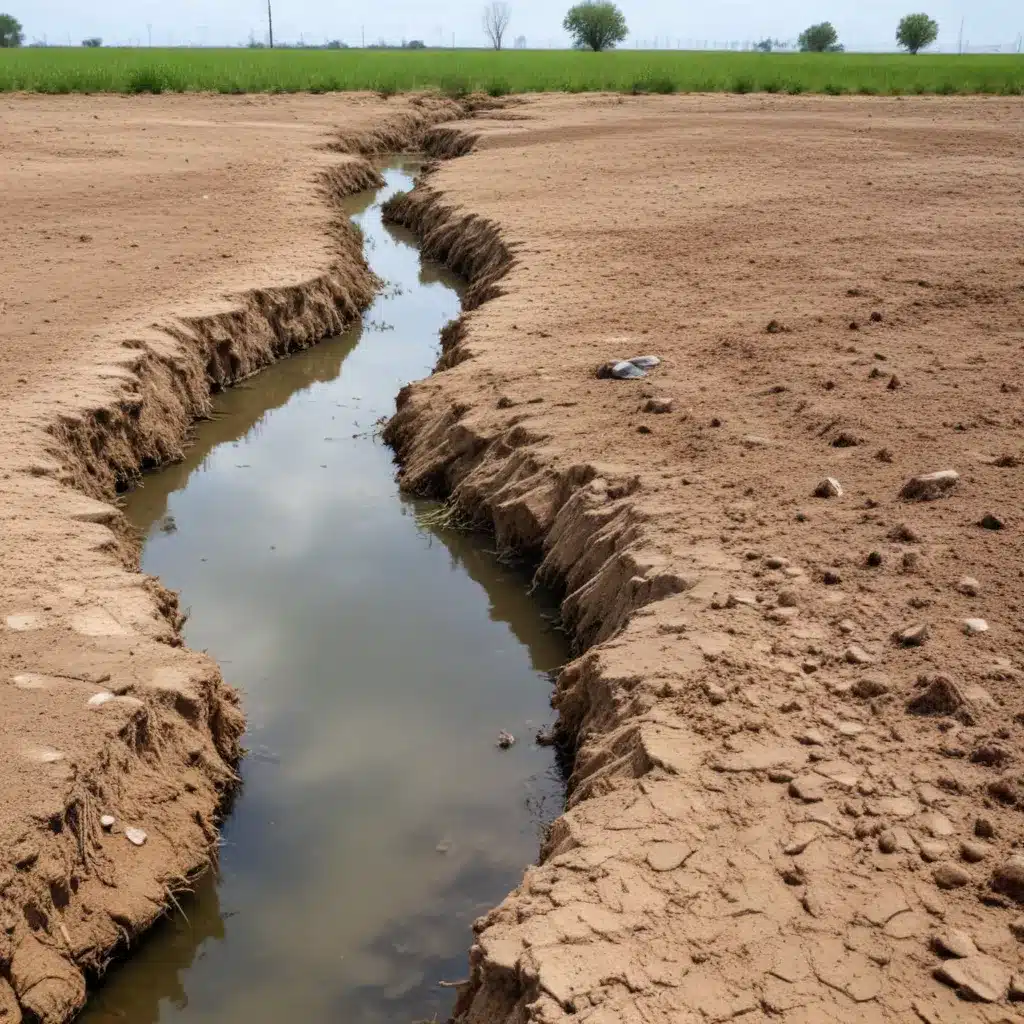
The Urgency of Groundwater Management in a Changing Climate
As climate change brings more frequent and severe droughts, floods, and other extreme weather events, the importance of sustainable groundwater management has never been more critical. Groundwater – the water stored underground in aquifers – is a vital resource that provides drinking water, supports agricultural production, and helps maintain the health of ecosystems. Yet, in many regions, groundwater supplies are being depleted faster than they can be replenished, putting communities and the environment at risk.
In California, for example, the Sustainable Groundwater Management Act (SGMA) was enacted in 2014 to address the long-term sustainability of the state’s groundwater resources. The law requires the formation of Groundwater Sustainability Agencies (GSAs) to develop and implement Groundwater Sustainability Plans (GSPs) to achieve sustainable groundwater management by 2042. However, the task is daunting, as climate change is exacerbating the challenges of groundwater management, requiring innovative strategies and collaborative efforts to ensure a reliable water future.
Adapting to Climate Change Through Sustainable Groundwater Management
Enhancing Groundwater Recharge and Storage
One of the key strategies for adapting to climate change is to enhance groundwater recharge and storage. This involves capturing and storing excess surface water during wet periods, such as through the use of stormwater capture systems, aquifer storage and recovery (ASR) projects, and managed aquifer recharge (MAR) initiatives. These approaches can help replenish groundwater supplies and create a buffer against future droughts.
Improving Groundwater Monitoring and Modeling
Effective groundwater management also requires robust data and tools to understand the dynamics of groundwater systems. This includes investing in groundwater monitoring networks, developing advanced groundwater models, and integrating climate data to better predict the impacts of climate change on groundwater resources. By having a comprehensive understanding of groundwater conditions, policymakers and water managers can make more informed decisions and implement targeted interventions.
Promoting Efficient and Sustainable Groundwater Use
Reducing groundwater demand is another critical component of sustainable groundwater management. This can be achieved through a variety of strategies, such as:
– Implementing water conservation measures and improving irrigation efficiency in agriculture
– Encouraging the use of alternative water sources, such as recycled water or desalinated water, to reduce reliance on groundwater
– Developing groundwater allocation and pricing policies that incentivize efficient use and discourage over-pumping
– Engaging with local communities to raise awareness about the importance of groundwater stewardship and empower them to participate in decision-making processes.
Integrating Groundwater Management with Surface Water Management
Groundwater and surface water are inherently connected, and sustainable management requires an integrated approach that considers the interactions between these two water sources. This can involve:
– Coordinating the management of groundwater and surface water resources to optimize water supply and minimize conflicts
– Implementing policies and regulations that recognize the interconnected nature of groundwater and surface water
– Promoting nature-based solutions, such as restoring riparian habitats and wetlands, to enhance groundwater recharge and improve water quality.
Addressing Groundwater Quality Challenges
Climate change can also impact groundwater quality, leading to issues such as saltwater intrusion, increased contaminant levels, and the mobilization of naturally occurring substances. Sustainable groundwater management must address these water quality challenges through:
– Groundwater monitoring and assessment programs to identify and track changes in water quality
– Regulatory frameworks and enforcement mechanisms to protect groundwater from pollution and overexploitation
– Investments in water treatment technologies and infrastructure to ensure access to safe and clean drinking water.
Fostering Collaborative Groundwater Governance
Effective groundwater management requires a collaborative, multi-stakeholder approach that brings together various agencies, organizations, and community members. This can involve:
– Establishing robust governance structures, such as Groundwater Sustainability Agencies (GSAs), that facilitate coordination and decision-making among diverse stakeholders
– Developing inclusive and transparent planning processes that engage community members, particularly those disproportionately impacted by water scarcity and quality issues
– Encouraging knowledge-sharing and capacity-building initiatives to empower local communities and build their understanding of groundwater management
– Securing long-term funding and resources to support the implementation of sustainable groundwater management strategies.
The Role of Research and Innovation
Advancing sustainable groundwater management requires continuous research and innovation. Initiatives such as the Agricultural Water Center of Excellence at the University of California, Davis, are exploring cutting-edge solutions to address the interconnected challenges of groundwater quantity, quality, and climate change adaptation. These efforts include:
– Developing advanced groundwater modeling and decision-support tools to help water managers make informed decisions
– Testing and implementing innovative water conservation and reuse technologies to reduce groundwater demand
– Investigating the impacts of climate change on groundwater-dependent ecosystems and exploring nature-based solutions to enhance resilience
– Engaging with local communities and stakeholders to co-create sustainable groundwater management strategies that address their unique needs and priorities.
Conclusion: Building a Water-Resilient Future
As climate change continues to pose unprecedented challenges to water resources, sustainable groundwater management has emerged as a critical component of climate change adaptation. By enhancing groundwater recharge and storage, improving monitoring and modeling, promoting efficient use, and fostering collaborative governance, communities can build resilience and ensure the long-term availability of this vital resource.
The Joint Action for Water initiative is committed to supporting communities in their efforts to achieve sustainable groundwater management. Through knowledge-sharing, capacity-building, and advocacy, we aim to empower local stakeholders and facilitate the adoption of innovative, climate-smart groundwater management practices that safeguard water security, public health, and the environment. Together, we can create a water-resilient future that withstands the impacts of climate change and ensures a sustainable water supply for generations to come.

